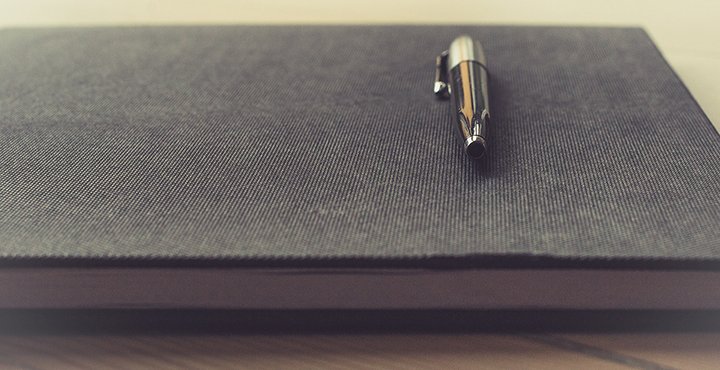Do you want to know the secret to becoming a writer?
Brace yourself, because it's a doozy. To become a writer, you have to write.
No, really. That's it. That is literally all you have to do. Did you ever think it'd be that simple? Now, skedaddle! Go write a sentence, you writer, you!
What are you still doing here? Aren't you off writing yet? I thought you wanted to become a writer. Well, I'm stumped. You seem more like a reader to me. Maybe you'd like some book recommendations? I can do that.
Oh. You don't just want to become a writer. You want to become a good writer. You want to become a great writer. You want to become a professional writer. Not all these things are the same, believe me, but they do overlap from time to time. And, depending on what your goal is, the steps you must take to achieve these things will differ (vastly).
Let's say you want to write a book—because that's really it, isn't it? Everyone and their mother wants to write a book, and a lot of people actually do. But compared with the people who want to, the number is tiny. Why?
Everyone tells us we shouldn't, and we tell ourselves we can't. We don't have the experience or the time or the talent or the inspiration. . . . The list goes on and on, and it's all excuses. We're full of excuses not to write! But there's one great reason to write: we're meant to.
 Becoming a writer isn't an impossible task. We're all storytellers; it's hardwired, programmed. From the time you told your mom that it was your brother who broke the snow globe, you became a storyteller.
Becoming a writer isn't an impossible task. We're all storytellers; it's hardwired, programmed. From the time you told your mom that it was your brother who broke the snow globe, you became a storyteller.
But you chained it away, fostering your inner critic instead. Adults love to be critics. There's nothing easier than not creating and judging other people's creations, because that's safe. What's not safe is going out on that limb and letting your fiction freak flag fly.
Like free falling, it's not incredibly safe, but it's not terribly difficult. All you have to do is let your storyteller come back out and jump off that ledge. Nothing ventured, nothing gained, right? All it takes is that one step. You're here because you want to take that step.
But how? How do you muster the courage? Being a writer is about taking everything one step, one sentence, at a time. You want to learn how to become a writer, and I know you have it in you. It's high time to chain up your inner critic and let your inner writer take that step of faith. It's an important step, but it doesn't have to be big. Here are 12 baby steps to start you off in the right direction.
1. Read it all.
The first step to becoming a writer is becoming a great reader. Read. Read everything. Read stuff you know you like and stuff you know you don't like. Ask the used bookstore owner for a recommendation, ask a friend what the last great book he or she read was, ask a librarian what's popular lately, and read all three. Browse the aisles of a chain store, and pick up a book on a topic you haven't read about before, perhaps architecture or religion or sports.
Read that crumpled-up grocery list on the ceramic tile covered with dirty footprints, read the backs of products on the bathroom counter, read ticket stubs on the bus on your way to class or work. Read translated poetry and old biographies, Wikipedia articles and YouTube comments, your favorite movie scripts and Ted Talk transcripts. Yes, you can also read Heather's Picks and popular fiction and Pulitzer Prize winners, but you should also read books on syllabi from your old school and rap lyrics and recipes and tweets and graphic novels.
Read, read, read.
Read everything you can get your hands on because what you absorb will subconsciously become a part of your writing. The more diversely you read, the more distinctive your voice will be when you write. A writer is an amalgamation of everything he or she has read. So own it. Only after you've read many different genres and types of writing can you decide what it is you truly like and admire, and then (and only then) should you seek more of it. The next step is to absorb what you love. Bookmark pages that particularly speak to you. Find the inspirations of your inspirations and read their work, too. Soak up your favorite writers like porous bread to honey. They are sweeter for now, but like dough rising, you will get to the top. It just takes time.
2. Nail it down.
This is going to sound like the most boring step, but it is an important one, so stick with me. You've got to nail down the basics. That means minding your Ps and Qs. And people are totally split on this one. You either think you know everything there is to know about the English language, or the mere thought of nailing down grammar rules has you in a fit of panic because you think you don't know anything. But either way, you're probably wrong.
If you think you know everything, do you know the difference between an em dash, an en dash, and a hyphen? How about the difference between single and double quotation marks? Or the difference between American, British, and Australian English? Do you know what a dangling modifier is and how to avoid it? Do you know when to spell out numbers in writing? These are all worth considering, and they barely skim the surface of grammar and spelling rules.
If you're in the latter camp, I'm sorry for scaring you just then. But whether you're a native English speaker or you're just beginning to learn the language, there's a good chance that you have at least some kind of intuitive sense of how to use English properly as a language. For instance, you probably know that "the brown small dog" sounds weird compared to "the small brown dog," but you may not know why.
Mastering the language is, of course, an important step in becoming a writer because if you don't know how it works, you'll have a hard time constructing sentences that will make your heroes weep with envy. Luckily, there are always ways to learn how to master the English language. Failing that, you could always just write and worry about revising it later. Whether you choose to nail down the basics first or go for the gusto, it's time to see a little bit of what you're made of.
3. Just try it.
 Now you've just gotta try it. But don't worry. You don't have to dive right in headfirst and write an epic poem. Beginners in anything need time to breathe and float. So go ahead! Dip your toes in. Write one sentence. It might sound a little obvious, but every story begins with a sentence. Just write something down. If you have to stare at that blank screen or piece of paper for an hour before you write anything, then do it. Stare at the ocean for as long as it takes. Believe me, there is a vast ocean to draw from. So dip your toes in!
Now you've just gotta try it. But don't worry. You don't have to dive right in headfirst and write an epic poem. Beginners in anything need time to breathe and float. So go ahead! Dip your toes in. Write one sentence. It might sound a little obvious, but every story begins with a sentence. Just write something down. If you have to stare at that blank screen or piece of paper for an hour before you write anything, then do it. Stare at the ocean for as long as it takes. Believe me, there is a vast ocean to draw from. So dip your toes in!
You might find that once you've started, you can't stop. That's good. Keep backing up each sentence with another one. Prove that the last sentence you wrote is true by supporting it with the next one, and so on. Don't worry; none of it has to make sense. Congratulations, you've just begun free writing! Do that for a set amount of time (15 minutes) or 100 words, whichever comes first. Write about the weather or your day or the man on the bus with the cane or a dragon and its horde. Write anything you want! Can't think of anything? Here are some writing prompts.
How'd it go? Did you find the vast expanse of the ocean intimidating or freeing? Did time fly by like a hummingbird or drag on like the hum of an old radiator? Did the words spill out onto the page like milk out of your nose, or was it more forced like a noodle? (Graphic, sorry.) You just became a writer. How does it feel? Glorious? Disappointing? Freeing? A little anticlimactic? Yeah, that all sounds about right. Now that you're a writer, though, you should write every day. Designate a small 15-minute chunk out of every day just to write. Then, in a month, increase that to 30 minutes. Continue until all you do is write. Just kidding! Leave time for eating. Say goodbye to sleeping, though, and hello to coffee. Kidding, again. (Kind of.)
4. Plot it out.
Now that you're familiar with the actual act of writing, you can begin to contemplate the thought processes involved. What goes into actually building a story? Sure, it's been fun to just free-write, but it's time for some direction! You said you wanted to be a writer, that you wanted to write a book, right? Well, to write a book (a conventional one, anyway), you're probably going to need a plot. But how do you figure out the tiny details of such a large-scale project?
Like before, it's all about taking it one baby step at a time. Writing a book is scary, but writing a sentence, as you've seen, is not. Luckily for you, writing a book is just writing a whole bunch of sentences! Writing a good book, though, will take some planning so that those sentences all make sense together.
First, you'll need a character who wants something he or she can't yet have. Next, map out how the story progresses point by point, and focus on writing one section at a time. What's also great is that you can set goals for your writing based on the sections and their respective approximate word counts. For example, let's say you want to have the setup for the novel finished in one month. Calculate how many words a day you need to write to achieve that, and then try to stick to your schedule. Crank it up to get your novel done faster!
5. Get psyched about it.
I'm one of those people who needs to get amped up about things before I do them. Whether it's blasting a party playlist an hour before the party or preparing a dinner for three hours for 20 minutes of eating, I like the anticipation. It's good to get supercharged before you do something because you generate a certain passion for it. And when you have that passion, you'll launch into it with everything you've got. You've dipped your toes, but soon you'll be high-diving headfirst. The time has come. Are you ready for it?
Don't be scared; get excited! You're a writer, and you’ll soon be a novelist! Remember that every additional word you write gets you that much closer to your goal. Each sentence is a sentence that would not have been written if it wasn't for you. You are creating a story only you can create. I hope you can understand how amazing that is! If you need some more fuel for your fire, load up some Ted Talks or interviews with your favorite authors. You can also browse NaNoWriMo's pep talks for words of wisdom or watch this video for endless hype. When you're good and inspired, you are ready to write.
6. Actually do it.
Okay, it's time to actually do it. No more lollygagging. You're extremely prepared, so it's time to write. This is both the easiest and the hardest step because there are no hard and fast rules for actually writing. The biggest goal is to tell a good story, right? Many writers have played with both format and plotting to do so uniquely. After all, rules are made to be broken. So what are you waiting for? You are a writer, and writers write. So hop to it! Get words on the paper.
Take breaks, but not too many breaks. Make coffee, glance out the window occasionally, check an email or two (we won't tell). But, most important, don't leave that desk until you achieve your word goal for the day. No matter how scary that blank paper or screen is, you have to write. Whether it's 100 words or 10,000 words, know that you are always getting closer to achieving your goal of writing a book and that you are a writer every step of the way. Good job!
7. Stick to it.
Being a writer isn't just about starting to write, though that's often the biggest step you'll take. Being a writer is about continuing to write. Get words on the paper, even when it's difficult. Some days, writing 100 words will seem impossible. Bad things will happen in your life, and writing will seem like a giant waste of time. It's not. You're a writer now. It's a part of you. Sure, you're not going to write every day, not when a tragedy strikes or when you're vacationing on a remote island. But on the majority of days, you should be sticking to it. When the writing gets tough, the tough get writing.
It's so important that you stick to it. If you forgo writing one day just because you feel like it or because you're a little tired and you'd rather marathon Netflix instead, it will seem innocent enough. But soon, one day will turn into two, and that will turn into 10, which will turn into 30, and so on. Once you break any kind of streak, it's difficult to recover. Get in the habit of writing, and get into it so deeply that you can't escape. Stick to the small goal you made. Writing 100 words is not difficult. Stick to it so much that you get stuck on it. It will feel so good when you meet (and maybe even pass!) your goal.
8. Rewrite it.
So you're done. You've been writing and writing and writing, and you've met your goal. Good job! Take a good long moment to celebrate. Pop open a bottle of Champagne. See your parents for the first time in months. Buy yourself something nice because you deserve it. Breathe in that fresh writerly air. Doesn't it seem sweeter, somehow, now that you're almost done?
Yes, almost done. You know what they say. Writing is rewriting. It's one of those clichés that's cliché only because it's so true. Once you're done celebrating, it's time to hunker down once again! Some people take this "writing is rewriting" business so seriously that they will literally rewrite their story sentence by sentence, fleshing out original thoughts, expanding, cutting down. (That's me. I'm talking about me.) You don't have to be so completely masochistic (though I would advise you to give it a shot and see what happens), but you should definitely edit the heck out of your novel. It is not complete otherwise.
Once you've gone through and rewritten it, figuratively or literally, you should edit it. Here's where those skills come in about nailing down rules of the English language. If you worked on it, this step is going to be a whole lot easier. If not, or if you just need a fresh set of eyes, you can have a professional edit your work for you, because we live in a convenient and beautiful world.
9. Seek advice on it.
Alright. You've done your best. The novel has been plotted and written and edited. Can you believe it? Here's this thing that you've crafted all by yourself that wouldn't exist otherwise. It's amazing, isn't it? I've told you that the most boring step is learning grammar and spelling and that the hardest step is beginning to write, but the scariest step, by far, is seeking advice.
Please, for the love of Pete, don't go to your friends and family for actual advice. You can go to your friends for questions about whether a scene is realistic, and you can go to your family for a pat on the back for having finished your novel. But please don't go to them expecting that they can give you helpful advice for improving your story or insight into the symbolism in Chapter 3. They likely don't know what they're doing. It's not their fault; they're not writers like you. Still, you have to find a professional.
Consider seeking a mentor. Consult the publishing community or other writers in your city. You can look for critique groups in libraries or cultural centers. The most important thing is that you find people who are passionate and know what they're talking about. (Sorry, Mom, but you only hit one of those.) If you can't find anyone in your community, go online. If you still fail, you could consider hiring a professional to critique your book. Here, you want to get as much red mark-up on your work as you can. It should be different from when you started, but remember that it is your own and you only have to accept constructive criticism.
10. Rewrite it again.
Now that you're drowning in red ink, you can start sifting through it. Keep what's valuable, and make all the necessary changes to make your work the best version of itself. Remember, though: if you wanted to write a lovers' tragedy and your mentor thinks the couple should get married at the end instead, ignore that advice. That's not making your work the best version of itself; that's making it something else entirely.
In the same way, if someone tells you to cut out the beautiful scene of your lovers dancing because it doesn't advance the plot or add to the characterization, nix it. Just because you like a piece of writing doesn't mean it needs to be in the story. As I said, writing is rewriting, so keep at it. It's important to develop a critical eye. Make sure your skin is thick, but not too thick. Don't bruise at the slightest critique, but don't take every hit without flinching, either.
11. Bestow it.
If you want to be a writer, you'll probably have to share your work with the world. Well, it's finally here. You're about to become an author. Take a deep breath, and set sail into the unknown. Your polished work will need some kind of publishing platform, so it's time to consider your options. Do you want to submit your book to publishers? Do you want to self-publish your book on Amazon? Do you want to simply post your novel to Google Docs and share it with friends? There are many options to consider.
No matter what you do, as a writer, it's likely you'll face some rejection. Whether that means a rejected book, a lack of sales, or a scathing critique, it's probably not going to feel good. Still, it's unlikely that your story will be a complete flop. Always remember that you've done something incredible by sharing your story with the world. But even if it is a complete flop, as I've said before, it's better to belly flop off the high dive than to stay in the shallow end of the pool your whole life.
12. Keep up with it.
You're a writer and an author. Great job! Let's keep it that way. As an author and writer, it's best for you to keep up with the field. How do you do that? Well, you should keep reading, and you should keep writing. You should also continue being involved in the community, whether that means supporting poetry readings or attending workshops or helping a writer friend with his or her book. You may also wish to keep up with the publishing industry or begin writing a journal. But you've done it. You've finally learned how to become a writer.
Conclusion
Becoming a writer is not an impossible task. I'm here to tell you that you should become a writer, that you can, that you have the talent, and that there are endless sources of inspiration. There is no excuse you can give me that I'll take, unless it's that you don't want to become a writer.
You are meant to write. If you're here, you've done it, or you're going to do it, and you should be proud! Doesn't it feel better to make something than it does to critique it? You've faced the danger, and I'll bet that something was gained. All it took was the first step. Finally, here you are—a writer. Bravo!
Image sources: alexandr_1958/BigStockPhoto.com, picjumbo/Pixabay.com, evgeny atamanenko/BigStockPhoto.com









